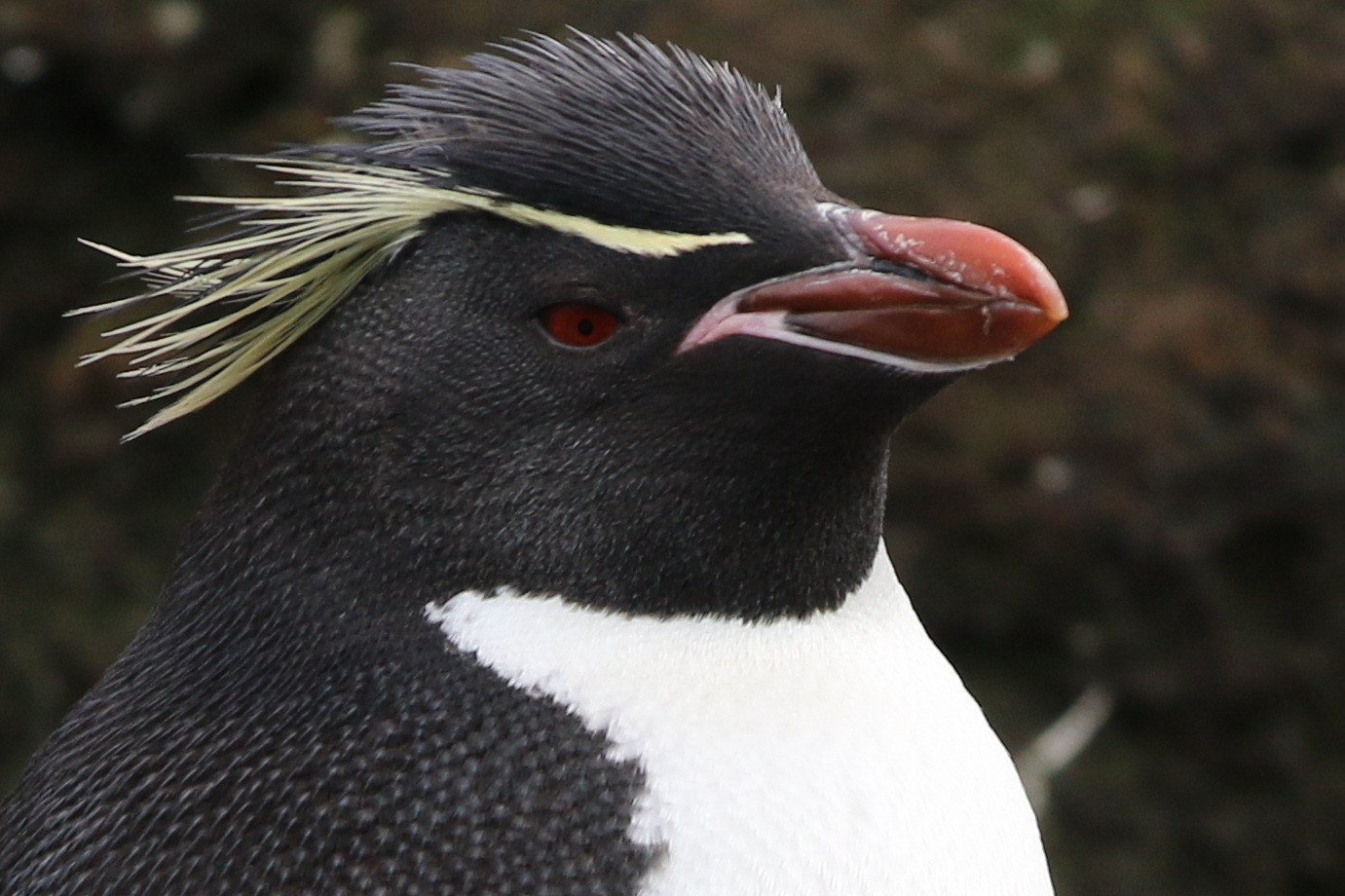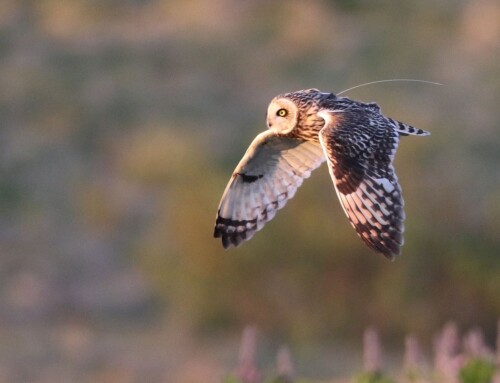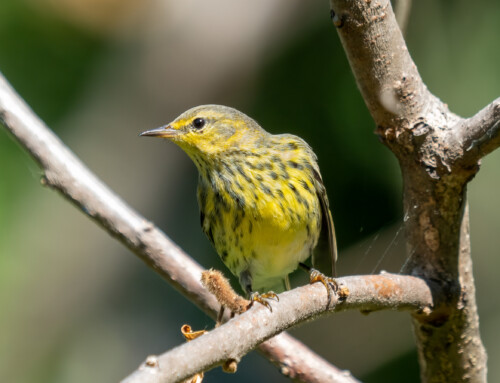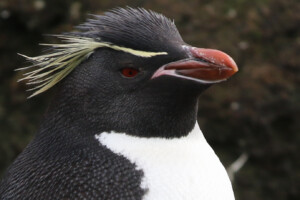 LINKED THESIS
LINKED THESIS
Following in the Footsteps of John Warham: Quantifying the ecological factors that underpin the nonbreeding foraging of Eudyptes penguins. Green, P. 2023. PhD Thesis – University of Tasmania.
My thesis explored the at-sea behaviours and foraging ecology of Eudyptes penguin species, a group of penguins that are both highly threatened and understudied. Through a collection of multi-taxa studies, my work provides valuable insights into factors influencing the distribution and foraging ecology of Eudyptes penguins during their nonbreeding migrations; a critical period of their annual cycle which has so far remained poorly studied. Additionally, my research contributes new knowledge on the nonbreeding migrations of five Eudyptes penguin populations from the Australasian Subantarctic islands, including Erect-crested Penguins, which had previously never been tracked. Finally, my thesis investigated the vulnerability of some populations of Eudyptes penguins to anticipated changes in the marine environment.
I have published two papers from my thesis, which I passed with minor corrections, including: “The role of allochrony in influencing interspecific differences in foraging distribution during the nonbreeding season between two congeneric crested penguin taxa” (Green et al. 2022) and “Potential for redistribution of post-moult habitat for Eudyptes penguins in the Southern Ocean under future climate conditions” (Green et al. 2023).
My thesis, for the first time since Warham’s studies in the 1970’s, has filled a complementary knowledge gap of where some of these same populations go during their nonbreeding migrations when they are at sea – and by and large unobservable to researchers (without tracking devices). To achieve this, I used a comprehensive tracking dataset obtained from geolocators – small logging devices, which estimate location based on recorded light levels. My hope is that I have demonstrated the powerful potential of small data loggers, attached to birds’ legs, in advancing our understanding of migratory behaviour and its implications for conservation and climate change research. Further, despite the work being presented in two dimensions, I aimed to tell the story of the four-dimensional exploration of the space, time, depth and oceanographic systems exploited by these penguins. Thus, together my and Warham’s studies, though 50 years apart, have made a significant contribution to rectifying the lack of ecological information of Eudyptes penguins which Stonehouse stressed in 1967. So, following in the footsteps of John Warham, I like to think we’ve come full circle and hope that he would have been delighted to see where the Eudyptes penguins, that he studied so intricately for over ten years, migrate to when at sea.
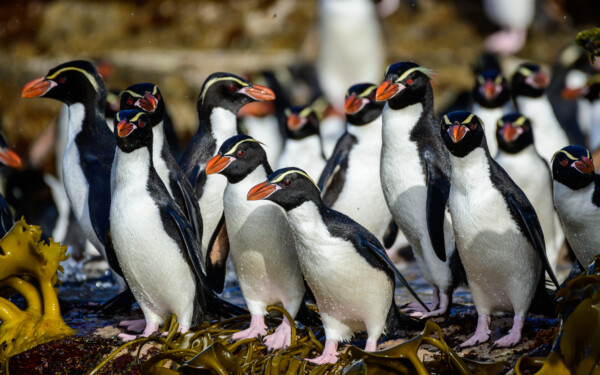
Figure 2 Group of Snares Penguins Eudyptes robustus © Jake Osborne.
The relevance of these findings extends beyond ecological theory and climate change science. Eudyptes penguins are charismatic and iconic creatures, and my research provides critical insights into their behaviour and survival. It can also help inform conservation and management efforts to protect these species, especially those listed as Vulnerable and Endangered. By understanding their movements, we can develop strategies to safeguard their habitats and ensure their long-term survival in a rapidly changing marine environment.
Reflecting on my experience as a PhD student, I must say it was a challenging yet immensely rewarding journey. Conducting research on such a unique and enigmatic group of animals was a privilege. It required countless hours of tracking data processing, analysis, and fieldwork in some of the most remote and beautiful places on Earth. It was a constant learning process, and I am grateful for the support and guidance of my advisors and colleagues throughout this endeavor.
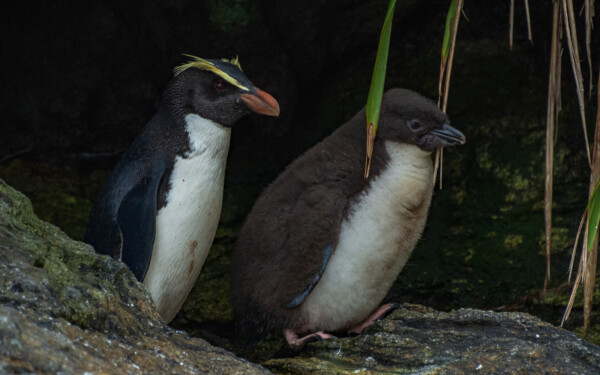
Figure 3 Fiordland Pengiun Eudyptes pachyrhynchus with chick © Jake Osborne.
One aspect that significantly facilitated my research was the BOU Warham scholarship I received. Research scholarships play a pivotal role in enabling students to pursue their academic and research goals. Unfortunately, the majority of my PhD was during covid and due to Covid related restrictions I could not attend as many conferences as I would’ve liked, and we were restricted from doing the full set of fieldwork that had originally been planned for. Nonetheless, the BOU Warham scholarship provided the financial support needed to attend one in-person conference (the International Penguin Conference held in New Zealand in 2019), purchase tags for fieldwork, go on a fieldtrip to the Bounty Islands, New Zealand, as well as finance essential running costs. Without this support, my research would have been considerably more challenging to carry out effectively. Moreover, the scholarship was not just about financial assistance. It represented recognition and belief in the value of my research and its potential impact. It motivated me to strive for excellence and pushed me to contribute meaningfully to the field of penguin ecology. Being part of the IMAS Marine Predator research lab with the backing of this BOU Warham scholarship allowed me to focus on my research, working together with world renowned scientists, without the burden of financial concerns, which was instrumental in achieving the depth and breadth of findings presented in my thesis.
In conclusion, my PhD journey through the world of Eudyptes penguins has been both enlightening and fulfilling. The major findings from my research have practical implications for the conservation of these remarkable birds, shedding light on their migration patterns, niche partitioning behaviors, and responses to climate change. As a recent PhD graduate, I am grateful and privileged for the scholarship that supported my research and for the opportunity to contribute to our understanding of these charismatic marine predators.
List of Publications
Green, C.P., Ratcliffe, N., Mattern, T., Thompson, D., Lea, M.A., Wotherspoon, S., Borboroglu, P.G., Ellenberg, U., Morrison, K.W., Pütz, K., Sagar, P.M. 2022. The role of allochrony in influencing interspecific differences in foraging distribution during the non-breeding season between two congeneric crested penguin species. PLOS ONE 17:2. VIEW
Green, C.P., Green, D.B., Ratcliffe, N., Thompson, D., Lea, M.A., Baylis, A.M., Bond, A.L., Bost, C.A., Crofts, S., Cuthbert, R.J., González‐Solís, J. 2023. Potential for redistribution of post‐moult habitat for Eudyptes penguins in the Southern Ocean under future climate conditions. Global Change Biology 29:3. VIEW
Image credit
Top right: Eastern Rockhopper Pengion Eudyptes chrysocome filholi CC BY 2.0 DEED laikolosse.


